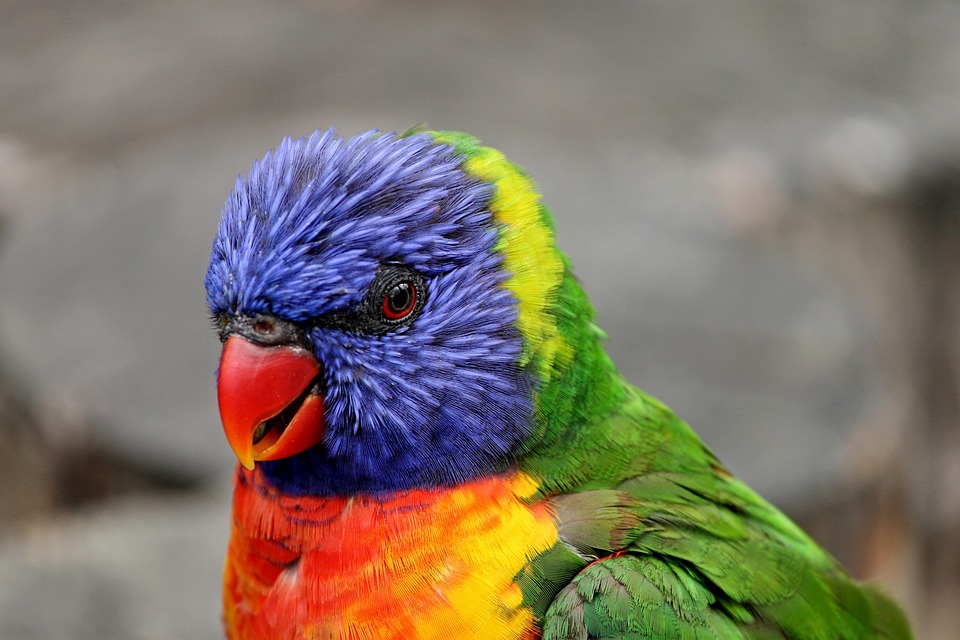Parrots are fascinating and intelligent creatures that make wonderful companions. However, just like any other pet, they can develop behavior problems that may require attention and understanding. In this article, we will explore common parrot behavior problems, their underlying causes, and effective strategies to address them. Additionally, we will provide a FAQ section to answer some of the frequently asked questions regarding parrot behavior.
Common Parrot Behavior Problems:
1. Excessive Screaming:
– Causes: Loneliness, boredom, fear, or seeking attention.
– Solutions: Provide mental stimulation, regular social interaction, and a consistent daily routine. Consider providing toys, puzzles, and training exercises to keep your parrot engaged and mentally stimulated.
2. Feather Plucking:
– Causes: Stress, boredom, loneliness, illness, or discomfort.
– Solutions: Schedule regular veterinary check-ups to rule out any underlying health issues. Create an enriching environment with toys, perches, and social interaction. Address any potential stressors and ensure your parrot receives a balanced diet.
3. Biting and Aggression:
– Causes: Fear, territorial behavior, hormonal changes, or lack of trust.
– Solutions: Build trust through positive reinforcement and consistent training. Provide a safe and secure environment, avoid sudden movements, and learn to read your parrot’s body language. Seek guidance from an avian behaviorist if the behavior persists.
4. Excessive Chewing:
– Causes: Boredom, teething, or exploring their environment.
– Solutions: Offer appropriate chewing toys and rotate them regularly to keep your parrot engaged. Ensure their environment is safe and free from toxic substances. Provide mental stimulation through training exercises and interactive play.
Effective Strategies for Addressing Parrot Behavior Problems:
1. Positive Reinforcement:
– Use rewards, such as treats or praise, to reinforce desirable behaviors. Ignore or redirect unwanted behaviors instead of punishing your parrot.
2. Socialization and Enrichment:
– Parrots are highly social creatures, so ensure they receive regular social interaction. Offer a variety of toys, perches, and activities to keep them mentally stimulated.
3. Consistent Routine:
– Establish a consistent daily routine for feeding, playtime, training, and bedtime. Parrots thrive on predictability and structure.
4. Training and Communication:
– Teach your parrot basic commands and cues using positive reinforcement techniques. Use clear and consistent communication to help them understand your expectations.
FAQs (Frequently Asked Questions):
Q1. Can parrots be potty trained?
– Yes, parrots can be potty trained to an extent. By observing their body language and providing consistent cues, you can encourage them to eliminate in designated areas.
Q2. How long does it take to address parrot behavior problems?
– The time required to address behavior problems varies depending on the individual parrot and the complexity of the issue. It may take weeks or even months of consistent training and environmental adjustments.
Q3. Should I punish my parrot for bad behavior?
– Punishment is generally not recommended for parrots. It can lead to fear and aggression. Instead, focus on positive reinforcement and redirecting unwanted behaviors.
Q4. Can parrots get depressed?
– Yes, parrots are susceptible to depression. Loneliness, lack of mental stimulation, and changes in their environment or routine can contribute to depressive behaviors. It’s important to provide them with companionship, enrichment, and a supportive environment.
Q5. When should I seek professional help for my parrot’s behavior problems?
– If you have tried various strategies without success or if the behavior problem poses a risk to your parrot’s well-being or the household, it is advisable to consult an avian behaviorist or a certified parrot trainer for expert guidance.
Conclusion:
Understanding and addressing common parrot behavior problems requires patience, consistency, and a deep understanding of your parrot’s needs. By providing a stimulating environment, social interaction, and positive reinforcement, you can help your feathered friend overcome behavior challenges and foster a harmonious relationship between you and your parrot.









